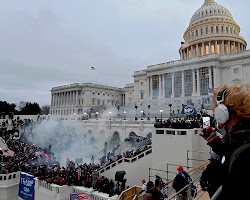Abstract
For centuries, the United States government has used guns to target Native American communities. This violence has been met with little public outcry, and even been seen as a necessary part of "civilizing" the continent. However, when guns are aimed at urban communities, the response is very different. These communities are often seen as "dangerous" and "crime-ridden," and the violence that occurs there is often dismissed as inevitable.
This essay explores the history of gun violence against Native Americans and urban communities, and asks why the response to these two forms of violence is so different. It argues that the way we talk about gun violence is shaped by our own biases and prejudices, and that these biases have led to a situation where gun violence against Native Americans is seen as "under control" while gun violence against urban communities is ignored.
The essay concludes by calling for a more just and equitable response to gun violence, one that does not allow our biases to dictate who is seen as worthy of protection.
Here are some additional points that could be included in the essay:
- The history of gun violence against Native Americans is often overlooked or erased.
- The way we talk about gun violence is often shaped by stereotypes about Native Americans and urban communities.
- The response to gun violence is often influenced by political considerations.
- There is a need for a more just and equitable response to gun violence.
Article
The United States has a long and complicated history with guns. From the colonization of Native Americans to the present day, guns have been used to oppress and control minority communities.
In the early days of European colonization, guns were used to forcibly remove Native Americans from their land. The U.S. government also used guns to suppress Native American uprisings, such as the Wounded Knee Massacre in 1890.
Today, guns are still used to target minority communities. In urban areas, gun violence is disproportionately high among Black and Latino people. And while there have been some efforts to address gun violence in these communities, they have often been met with resistance from gun rights advocates.
One reason why gun violence in urban communities is not a priority is that it is often seen as a problem that only affects those communities. This is a harmful stereotype that ignores the fact that gun violence can happen anywhere, and that it affects people of all races and backgrounds.
Another reason why gun violence in urban communities is not a priority is that there is a lack of political will to address it. Gun rights advocates have a powerful lobby in the United States, and they have been successful in blocking many efforts to pass gun control legislation.
Finally, the lack of minority gun manufacturers in the United States also contributes to the problem of gun violence in urban communities. Because there are few minority-owned gun companies, there is less competition in the gun market, which can lead to higher prices and less innovation. This makes it harder for people in urban communities to afford guns, and it can also lead to them buying guns from less reputable sources.
The history of gun violence in the United States is a long and complex one. But one thing is clear: gun violence is a problem that affects all of us, regardless of our race or background. We need to work together to address this problem, and we need to do it now.
Sources:
* The Gun Violence Archive: https://www.gunviolencearchive.org/
* The Brady Campaign to Prevent Gun Violence: https://www.bradyunited.org/
* The National Urban League: https://www.nul.org/
Call to action
If you want to help address gun violence in urban communities, here are some things you can do:
* Contact your elected officials and urge them to support gun control legislation.
* Donate to organizations that are working to address gun violence in urban communities.
* Volunteer your time to help educate people about gun violence.
Together, we can make a difference.



